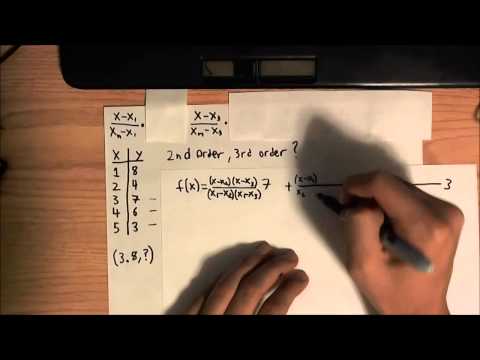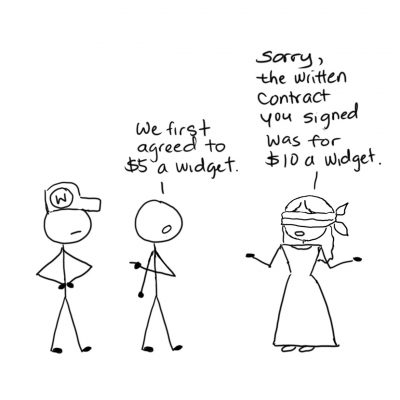
In our sidewalk example, this might mean contributing to the sidewalk fund for no reason other than that you feel obligated to as a member of the community. Public goods create a free rider problem because consumers are able to utilize public goods without paying for them. Note that, as mentioned earlier, the election of a candidate is a good
whose provision is a step function of the number of votes. If there
are n votes cast, then half of n − 1 votes spells defeat
and half of n + 1 spells victory. If, as Mayor Daley did with
the Chicago votes in the US presidential election of 1960, I could
withhold my vote until all others have been counted, my vote might
actually tip the result to victory for my candidate. In actual fact,
the typical voter casts a vote in a state of ignorance about the final
count.
- Benefits that result from trade union activity (such as improved working conditions and pay raises) accrue to all employees, including those who do not belong to the union.
- The concept of free riding has also been used to analyze problems of environmental politics.
- For these two reasons, property rights cannot be clearly defined and enforced.
- The problem is commonly seen with public goods (goods with non-excludable benefits).
- Systematically rejecting the fallacy of
composition in social theory, perhaps especially in normative theory,
has required several centuries, and invocation of the fallacy is still
pervasive.
Indeed, what are
often practically and politically interesting are goods that are in
fact provided collectively, independently of whether they have either
of the defining features of public goods. We can even provide purely
private consumptions through collective choice. For example, most
welfare programs transfer ordinary private consumption goods or
resources for obtaining these. Although technically these are not
public goods in Samuelson’s sense, we can refer to them as collective
goods and we can treat provision of them as essentially problems of
collective action. Even in the latter case,
however, the expected value of each voter’s contribution is the same ex
ante; there is no particular voter whose vote tips the outcome.
Note that the supply of such goods by
the state overcomes the free rider problem because voters can vote on
whether everyone is required to pay toward the provision, as in the
case of national defense. If I am voting whether the good is to be
provided, I cannot free ride and I need not worry that anyone else can
either. In essence, the theories that Olson’s argument demolished were all
grounded in a fallacy of composition. We commit this fallacy whenever
we suppose the characteristics of a group or set are the
characteristics of the members of the group or set or vice versa. If the group has an interest in contributing to
provision of its good, then individual members are (sometimes wrongly)
assumed to have an interest in contributing. Sometimes, this assumption
is merely shorthand for the recognition that all the members of a group
are of the same mind on some issue.
Find Similar Words
First-time readers of Plato are often astonished that
dear old Socrates seems not to get the logic but insists that it is our
interest to obey the law independently of the incentive of its
sanctions. The free rider problem can be illustrated through a prisoner’s dilemma game. Imagine there are two people, Tom and Adel, who are considering a contribution to a public good. The personal cost of contributing is $6 and the benefit of the contribution is $10. The fact that people do organize for collective purposes is often
taken to imply the normative goodness of what they seek.

He still joins the trip and enjoys the same benefits as the others, but he does not pay for any of the supplies. In the street lighting above, residents can ask for donations for motorists passing through the area. That reduces the burden for repairs free rider meaning at a later date or to reimburse a portion of residents’ contributions. Instead of taking away the choice of whether or not to contribute to a public good, this approach encourages people to contribute because it’s the right thing to do.
Explaining Collective Action
It might on rare occasion be true that the people are
in virtually unanimous agreement on some important policy so that they
share the same will on that issue. But generally, there is a diversity
of views and even deep conflict over significant policies in modern
pluralist democracies. In large societies, democracy is invariably
representative democracy except on issues that are put to direct
popular vote in referendums. My
representative on some governmental body is apt to work on behalf of my
interests some of the time and against them some of the time. Even
those for whom I vote often work against my interests; and if they
should be said to represent me, they often do a very bad job of it. When collective goods can be supplied by government or some other
agency, political entrepreneurs might organize the provision.
In such cases, if n is very large and you do not
contribute to our collective effort, the rest of us might still benefit
from providing our collective good, so that you benefit without
contributing. Free Rider is a term that was first coined in economics and refers to someone (a person or group) that benefits from something without contributing their fair share – similar to someone taking a bus ride for free, when everyone else has paid. Psychologically, humans are fundamentally considered as free-riders by others only when benefits are consumed while contributions are withheld. Social norms impact on privately and voluntarily provided public goods; however, is considered to have some level of effect on the problem in many contexts. Because of the free rider problem, the costs of maintaining a public good heavily outweigh any profits that they might make, which discourages private companies from producing them through the free market.
Either there is one or there is not, and if there is one, then I
am potentially subject to its powers of legal coercion. On balance, I
would want there to be an effective state for the protections it gives
me against others despite its potential for coercing me into good
behavior. Erika Rasure is globally-recognized as a leading consumer economics subject matter expert, researcher, and educator. She is a financial therapist and transformational coach, with a special interest in helping women learn how to invest.
A standard response to the
phenomenon of massive voting is to note how cheap the action is and how
much public effort is expended in exhorting citizens to vote. But it
seems likely that much of the voting we see is normatively
motivated. Finally turn to the possible role of misunderstanding in leading
people to act for collective provisions. Despite the fact that people
regularly grasp the incentive to free ride on the efforts of others in
many contexts, it is also true that the logic of collective action is
hard to grasp in the abstract. The cursory history above suggests just
how hard it was to come to a general understanding of the problem.
Words Ending With
Today, there are thousands of social scientists and philosophers who do
understand it and maybe far more who still do not. Those who teach these issues regularly
discover that some students insist that the logic is wrong, that it is,
for example, in the interest of workers to pay dues voluntarily to
unions or that it is in one’s interest to vote. If the latter is true,
then about half of voting-age Americans evidently act against their own
interests every quadrennial election year.
Local elections in the US
often turn out far less than half the eligible citizens and
presidential elections turn out a bit more than half. One may question
just what kind of democracy the US has, but it seems in some
significant ways to work. Adam Smith’s argument for the invisible hand that keeps sellers
competitive rather than in collusion is a fundamentally important and
benign—indeed, beneficial—instance of the logic of collective
action.
Master falconer sues three TWRA officers after sweeping home … – Chattanooga Times Free Press
Master falconer sues three TWRA officers after sweeping home ….
Posted: Sat, 05 Aug 2023 16:00:00 GMT [source]
These laws, which in the 20th century came to be called intellectual property laws, attempt to remove the natural non-excludability by prohibiting reproduction of the good. Although they can address the free rider problem, the downside of these laws is that they imply private monopoly power and thus are not Pareto-optimal. John builds a lighthouse on the coast to serve as a navigational aid. As a result, all sailors are now able to benefit from the lighthouse even if they are not paying towards its upkeep. There is no profit incentive for John to maintain the lighthouse, as he is the only person contributing to its upkeep.
There are several actions that could trigger this block including submitting a certain word or phrase, a SQL command or malformed data. In the prisoner’s dilemma game above, we can see that both Tom and Adel would attempt to free ride (not contribute). Hundreds of millions of people use Wikipedia every month but only a tiny fraction of users pay to use it. A large majority of Wikipedia users do not pay to use the site but are able to benefit from the information provided by the website.
Games
Olson’s analysis abruptly ended this long
tradition; and group theory in politics took on, as the central task,
trying to understand why some groups organize and others do not. Free riders become a problem when non-excludable goods are also rivalrous. The theory of ‘Tragedy of the commons’ highlights this, in which each consumer acts to maximize their own utility and thereby relies on others to cut back their own consumption.
Going back to our sidewalk example again, incentives might be offered in the form of your name listed on a plaque if you donate a certain amount. “You can essentially signal to your society, your peers, that, ‘Hey, look, I am contributing to this good cause,” Kushwaha says. Unfortunately, if everyone comes to this realization, there’s very little incentive for any individual person to donate. Assuming that everyone in your neighborhood acts solely in their self-interest, chances are, your neighborhood will be stuck with the old, cracked neighborhood until someone fixes it.
The modern view of the fallacy of composition in social choice is a
product of the understanding of politics as self-interested. That
understanding begins partially with Niccolò Machiavelli, who
advised the prince to act from his own self-interest. A century later,
Hobbes did not bother to advise acting from self-interest because he
supposed virtually everyone naturally does so. From that assumption, he
went on to give us the first modern political theory of the state, an
explanatory political theory that is not merely a handbook for the
prince and that is not grounded in normative assumptions of religious
commitment. To some extent, therefore, one could credit Hobbes with the
invention of social science and of explanatory, as opposed to
hortatory, political theory. The concept of free riding has also been used to analyze problems of environmental politics.
- On the positive side, some people in every community will demonstrate that they feel a responsibility to pay their fair share.
- If so, half of all citizens seems likely to
be a number significantly greater than k. - Some combination of a high sense of trust, positive reciprocity, and a sense of collective duty makes them willing to pay their fair share.
The shared resource must be subsidized in some other way, or it will not be created. Hobbes’s argument for the state is an argument from mutual
advantage. We all benefit if there is a powerful state in place to
regulate behavior, thereby enabling us to invest efforts in producing
things to make our lives better and to enable us to exchange with each
other without fear that others will wreck our efforts. Some scholars
see this resolution as a matter of mutual cooperation in a grand
prisoner’s dilemma.
The free rider problem can crop up when the resource is shared by all and free to all. If a community sets voluntary pollution standards that encourage all residents to cut back on carbon-based fuels, many will respond positively. If enough follow the standards, the air quality will improve and all the residents will benefit equally, even the free riders.

When too many free riders consume a shared resource, it becomes difficult to maintain that resource, which is known as the free rider problem. Even if we grant his parenthetical characterization of individual
reasons for action, it does not follow that the collective creation of
a city-state is grounded in the same motivations, or in any collective
motivation at all. Most likely, any actual city-state is the product in
large part of unintended consequences. People can use and get the same benefits from the consumption of goods. They will act to maximize their own utility leading to excessive consumption.
